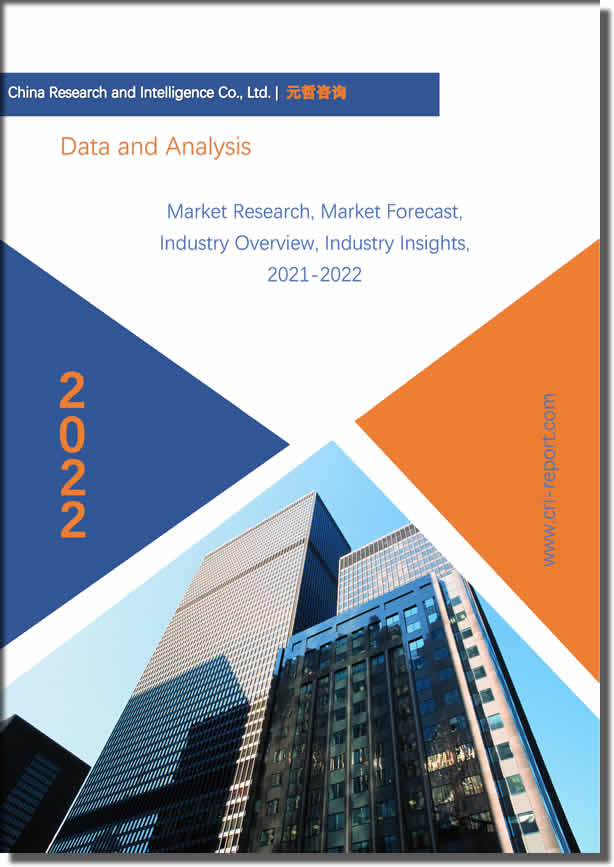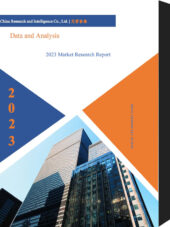Description
Market Report Coverage – Next-Generation Biomanufacturing Market
Market Segmentation
• Workflow – Upstream Biomanufacturing and Downstream Biomanufacturing
• Product – Continuous Upstream Biomanufacturing Products, Single-Use Upstream Biomanufacturing Products, and Downstream Biomanufacturing Products
• Medical Application – Monoclonal Antibodies, Hormones, Vaccines, Recombinant Proteins, Other Applications
• End User – Biopharmaceutical Companies, CMOs/CDMOs, Research Institutions
Regional Segmentation
• North America – U.S. and Canada
• Europe – U.K., Germany, France, Italy, Spain, Ireland, Switzerland, Russia and Rest-of-Europe
• Asia Pacific – China, Japan, India, South Korea, Australia, Singapore and Rest-of-Asia-Pacific
• Latin America – Brazil, Mexico, Argentina and Rest-of-Latin America
• Rest-of-the-World
Market Growth Drivers
• Increasing biologics and biosimilars approvals
• Growing trend among biomanufacturing vendors to integrate automation technologies
• Boosting bioproduction workflow while reducing cost, time, and labor
Market Challenges
• Complex production steps, process operational complexity, risk of product contamination, maintenance of production efficiency, and validation challenges
• Lack of skilled professionals
• Unharmonized manufacturing standards and lack of knowledge and skilled labor in middle-income and low-income countries
Market Opportunities
• Increasing development and commercialization of digital bioreactors
• Increasing Investment in R&D and rapid development of the biopharmaceutical industry
Key Companies Profiled
Applikon Biotechnology BV, bbi-biotech GmbH, Danaher Corporation, Eppendorf AG, Esco Group of Companies, GEA Group Aktiengesellschaft, Meissner Filtration Products, Inc., Merck KGaA, PBS Biotech, Inc., Pierre Guérin, Sartorius AG, Shanghai Bailun Biotechnology Co. Ltd., Solaris Biotechnology Srl., Thermo Fisher Scientific Inc., ZETA GmbH
Key Questions Answered in this Report:
• What are the key trends of the global next-generation biomanufacturing market? How is the market evolving, and what is its future scope?
• What is the role of automation in biomanufacturing?
• What are the major drivers, challenges, and opportunities of the global next-generation biomanufacturing market?
• What is the regulatory framework of the global next-generation biomanufacturing market?
• What is the market share of each of the players offering products for next-generation biomanufacturing? What are the key strategies implemented by the major players to sustain the competition of the global next-generation biomanufacturing market?
• What was the market size of the global next-generation biomanufacturing market in 2020, and what is the anticipated market size in 2031? What is the expected growth rate of the global next-generation biomanufacturing market during the forecast period 2021-2031?
• What are the different next-generation biomanufacturing products used in the medical field? Which product segment is expected to observe the highest CAGR in the market during the forecast period 2021-2031?
• What are the key medical applications of the global next-generation biomanufacturing market? Which application type is expected to witness the highest growth rate during the forecast period of 2021-2031?
• Who are the key end users for the global next-generation biomanufacturing market? What was the market share held by each end user in the global next-generation biomanufacturing market in 2020? What is the expected growth rate and market share by 2031?
• What was the market value of the leading segments and sub-segments of the global next-generation biomanufacturing market in 2020, and what are the values expected to be in 2031? What are the different macro- and micro-economic factors influencing the growth of the market?
• Which region dominated the global next-generation biomanufacturing market in 2020? Which geography can be the target market for significant expansion of key companies for different next-generation biomanufacturing products?
• What are the key countries contributing significantly toward the growth of the next-generation biomanufacturing market?
• What are the key players of the global next-generation biomanufacturing market, and what is their role in the market? Who are the leading payers in the single-use bioreactor market?
Market Overview
Biomanufacturing is the process of production of commercially important biomolecules by utilizing biological systems for use in medicines, food and beverage processing, and industrial applications. Natural sources such as blood, cultures of microbes, animal cells, or plant cells are often employed to carry out biomanufacturing. Cells used in the production process can also be derived using genetic engineering techniques.
The research study titled “Global Next-Generation Biomanufacturing Market” is focused on understanding the key trends of next-generation biomanufacturing with the use of single-use bioreactors and digital bioreactors across the globe.
The research study demonstrates the competitive landscape of the global next-generation biomanufacturing market and presents the market dynamics as well as the regulatory framework affecting the growth of the next-generation biomanufacturing across different regions.
The study also presents an in-depth analysis of the drivers, challenges, and opportunities of the market playing a significant role in major countries of North America, Europe, Asia-Pacific, Latin America, and the Rest-of-the-World.
The report is segmented based on workflow and product, medical application, end user, and region, thoroughly represented in different chapters. Each chapter provides a clear understanding of the products existing in the global next-generation biomanufacturing market and the current key trends in each domain.
The chapter further mentions the key companies of each domain and represents their contribution to the market. The report study also provides a holistic view of 15 major companies playing a key role by contributing their next-generation biomanufacturing market products.
In addition, the report covers detailed information on the advent of automation in biomanufacturing with data on types of automation, current trends, and opportunities in the field of automation.
Our healthcare experts have found global next-generation biomanufacturing to be one of the most rapidly evolving markets. The global next-generation biomanufacturing market is expected to grow at a CAGR of 14.85% during the forecast period 2021-2031 and is expected to reach a value of $85,201.2 million in 2031.
The following report presents the reader with an opportunity to unlock comprehensive insights regarding the next-generation biomanufacturing market and helps form well-informed strategic decisions.
The market research study also offers a broad perspective of the different types of products and services available in the market and their impact on the biomanufacturing industry by providing critical insights into the direction of its future expansion.
Within the research report, the market is segmented based on workflow and product, medical application, end user, and region. Each of these segments has been further categorized into sub-segments to compile an in-depth study.
Each of these segments covers the snapshot of the market over the projected years, the inclination of the market revenue, underlying patterns, and trends by using analytics on the primary and secondary data obtained.
The global next-generation biomanufacturing market, by workflow, is primarily dominated by upstream biomanufacturing. This is mainly attributed to the involvement of a large number of high-cost equipment in upstream biomanufacturing compared to downstream biomanufacturing.
However, downstream biomanufacturing is expected to witness a high CAGR during the forecast compared to upstream biomanufacturing. This is mainly due to continuous product innovations in the chromatography product lines as well as in filtration systems used in downstream processing.
Among the different regions, North America dominated the global next-generation biomanufacturing market in 2020. Large, well-equipped biomanufacturing facilities with advanced infrastructure and strong investments in the biomanufacturing sector are significantly promoting the growth of the next-generation biomanufacturing market in North America.
Moreover, the ever-expanding biopharmaceuticals and biologics industry in North America is offering huge promises for the industry’s growth, attracting the attention of the investors attempting to enter this field.
Further, the headquarters of several key industry players in the U.S., such as Thermo Fisher Scientific, Inc., GE Healthcare, PBS Biotech, Inc., CESCO Bioengineering Co. Ltd., and Meissner Filtration Products, Inc., have further strengthened the market in the region.
Among all the regions, Asia-Pacific is expected to witness the highest CAGR during the forecast period 2021-2031. This is mainly attributed to the strong potential of emerging nations of Asia-Pacific, including Japan, India, Australia, South Korea, and Singapore, that are witnessing huge adoption of technologically advanced biomanufacturing equipment.
The growing surge in new capacity installations to meet the increased product demand in developing nations of Asia-Pacific is further expected to boost the next-generation biomanufacturing market growth.
Competitive Landscape
The next-generation biomanufacturing market is largely dominated by companies such as Applikon Biotechnology BV, bbi-biotech GmbH, Danaher Corporation, Eppendorf AG, Esco Group of Companies, GEA Group Aktiengesellschaft, Meissner Filtration Products, Inc., Merck KGaA, PBS Biotech, Inc., Pierre Guérin, Sartorius AG, Shanghai Bailun Biotechnology Co. Ltd, Solaris Biotechnology Srl, Thermo Fisher Scientific Inc., ZETA GmbH.
The bioprocess segment of a few companies like GE Healthcare was highly impacted by the COVID-19 pandemic due to the supply-demand gap. Due to this, the company reported low segment revenue in 2020. However, key players like Danaher Corporation witnessed high growth in the revenue attributed to the high demand for bioprocess solutions products.
The global -next-generation biomanufacturing market is growing exponentially due to the high rate of investments from both public and private sectors for the development of facilities equipped with advanced biomanufacturing equipment and instruments.
Automation technologies are increasingly gaining prominence in the biomanufacturing industry over the years owing to their vast range of advantages in terms of greater speed, productivity, and accuracy. Offering a more streamlined and centralized control, the market for automation systems is growing rapidly, with a greater number of companies investing and launching new automation solutions in the market.
Over the past five years, from 2017 to 2021, the next-generation biomanufacturing market has witnessed around 115 key developments biomanufacturing and automation undertaken by key companies that varied from acquisitions to partnerships and collaborations, among others.
For instance, in February 2020, Honeywell International Inc. collaborated with Bigfinite, Inc. to contribute to process automation and controls technology with Bigfinite’s AI, data analytics, and machine learning platform to pace the medical therapies by helping pharma and biotech industries.
Further, in March 2019, Rockwell Automation and GE Healthcare underwent a collaborative agreement to combine their automation single-use solution expertise to build bioprocessing operations for digital bioprocessing.



